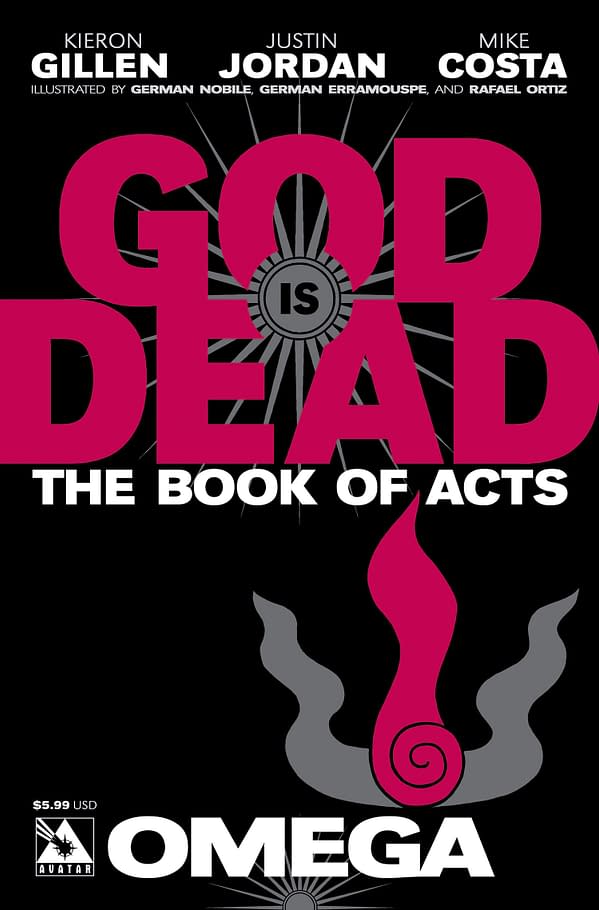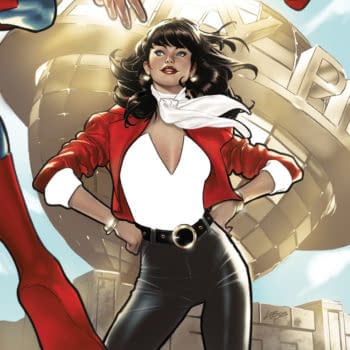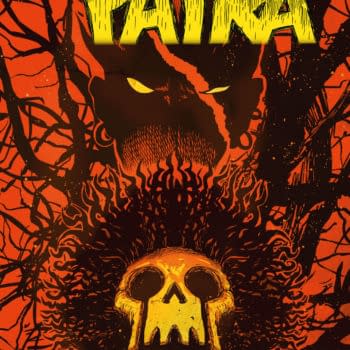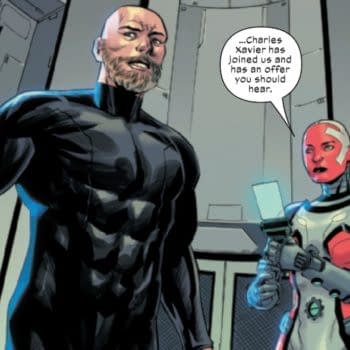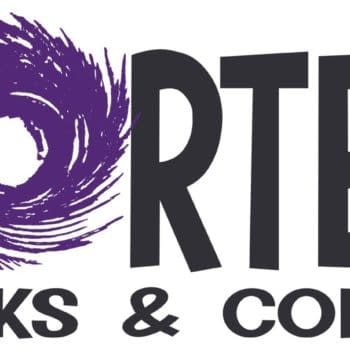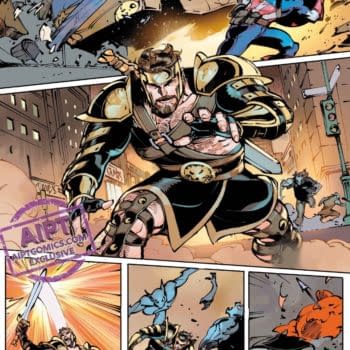Posted in: Comics, Recent Updates | Tagged: Alan Moore, avatar press, Comics, entertainment, God is Dead: Book of Acts "Alpha", God is Dead: Book of Acts "Omega", Justin Jordan, kieron gillen, mike costa, simon spurrier
Justin Jordan Sees The Savage Side Of The Great God Pan Writing God Is Dead: Omega With Mike Costa And Kieron Gillen
Today we give you the final piece of the puzzle in this anatomy of God is Dead: Book of Acts "Alpha" and "Omega" the two issues that will set the stage for the big events of the new arc of the series. First we announced Alan Moore scripting himself into a story of the snake puppet god Glycon returning, full of the strangeness and humor that must entail, then we brought you Mike Costa giving his thoughts on using an underdog "Ifrit" fire spirit as an identification character in what's shaping up to be quite a detective story about why the gods have returned to earth in the first place. Simon Spurrier shared his rather deep and profane insights into creating our own gods and how to swear a fight dead in its tracks for his contributions to "Alpha", and Kieron Gillen pulled back the curtain on devilish heroes and the vast indifference of hell in the grand scheme of things on "Omega".
Justin Jordan (Luther Strode, Dead Body Road, Green Lantern) joins us today to talk about his story in "Omega", one that neatly counterbalances many of the themes that Costa and Gillen bring to light in the same issue, namely the full spectrum of motivations that these returned gods might bring to the table and how their goals might sway the outcome of an all-out-war between gods on earth. Jordan's story, "The Great God Pan" subtly undermines many of our assumptions about what gods get up to when they walk among human kind. Perhaps they just "are" and by their nature, like Pan, they bring strange blessings and curses with them. Jordan tells the story of Helen, who driven by compulsions she can't understand, leaves a trail of havoc in her wake until she discovers the implacable power of the natural world itself.
Hannah Means-Shannon: What do you think are the best and worst things about the possibility of gods suddenly turning up on earth? Or are there only worst things?
Justin Jordan: I'm not sure it would only be worse things. It would depends. Frankly though, most gods as looked through by the lens of modern morality are pretty well a bunch of fucking bastards. Even the 'good' ones.
But living in an age of miracles, where there's a pretty good chance that life after death is real, well, that could be good. On the other hand, it means being at the whim of capricious beings who can do whatever they want, whenever ever they want, without any recourse.
Although you could be really cynical and say we already live in that world, I guess.
HMS: In your depiction of Helen, she's a stricken person, even cursed really. Do you have sympathy for her as a character? What elements do you think are "real to life" about her?
JJ: I have great sympathy for Helen. She absolutely is cursed, and she's cursed in a way that, again, offends a modern sense of morality. She is cursed for nothing at all that she did. She was born cursed.
And you know, to get all art-guy about it, the idea of this person acting out compulsively in ways that she can't really understand, that interests me. Because I think we all understand a lot less about what we do than we think we do. And god knows it must be awful to be at the mercy of something inside you that is fundamentally incomprehensible.
I suffered from depression when I was younger. Once you're out of it and able to look at the experience from a different viewpoint, you realize how strange it is. For me, at least, I knew intellectually what was wrong with me, but it didn't matter. You can't think your way out of it.
And that's kind of horrifying. Helen knows that her life is bizarre and her actions somewhat monstrous, but she can't help it. It's both sad and terrifying, at least to me.
The story itself is an homage to Arthur Machen's The Great God Pan (which is public domain and available for free, and well worth reading) which is about a similar character, who I always thought was kind of tragic, so I want to play with that a bit.
HMS: What does Pan mean to you as a figure? Why do you think he continues to be a powerful idea after thousands of years?
JJ: Humans have a tendency to give things attributes that sound like they're all-encompassing. Currently, we tend to think of nature as good and beautiful. God knows, every food manufacturer and marketer has 'all natural' as a bonus.
And nature is beautiful. It is also ugly. A baby deer ripped apart by coyotes is ugly. A rotting tree is ugly. And none of it is good. Or bad. Nature just is. We like to anthropomorphize things in ways that are sometimes obvious and sometimes subtle. Nature is random processes happening, and they are neither evil nor good. They just are.
So this version of Pan is meant to represent that. He is nature literally anthropomorphized and while he's malicious, it's only when viewed through human eyes. If we told another story, Pan might save a whole town from starvation.
He's an attempt to put a human face on something incomprehensible, both in this story and in culture. I think he serves as a pretty good symbol for the amorality (man, morals have come up a lot in this interview) of the wild.
God is Dead: Book of Acts 'Alpha' appears in shops from Avatar Press on August 13th with the item code JUN140844 and God is Dead: Book of Acts 'Omega' arrives on August 27th with the item code JUN140851. The first trade collection of God is Dead is also currently available.


